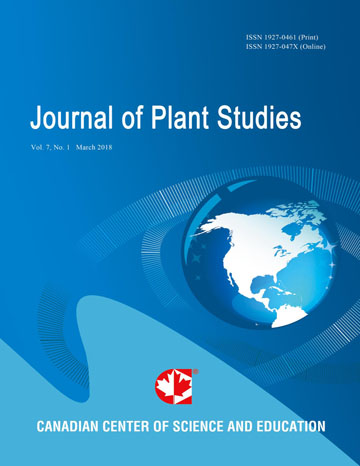In vitro and in vivo Assay for Assessment of the Biological Control Potential of Streptomyces sp. KT
- Tatsuya Ohike
- Minori Maeda
- Tetsuya Matsukawa
- Masahiro Okanami
- Shin’ichiro Kajiyama
- Takashi Ano
Abstract
Rhizoctonia solani is fungal plant pathogen that infects many different host plants. Recently, biological control agents that are friendly to the environment and ecosystems have attracted much attention as an alternative to the use of chemical fungicide which have been used worldwide to control soil borne pathogens including R. solani. In this study, 53 strains of actinomycetes isolated from environmental soils, and antifungal activities of them were assessed by the dual culture assay. Strain KT showed strong inhibitory activities against 8 phytopathogenic fungi. A great suppressive effect on R. solani growth was observed in the inoculation test of plants using cucumber and chin-geng-sai. In addition, infection of Bipolaris oryzae also could be suppressed in the detached leaf assay using oats. As a result of genetic analysis, it was shown that KT was a species closely related to Streptomyces lavenduligriseus NRRL B-3173T. However, as far as we know, there is no report for biological control agents using S. lavenduligriseus. This study suggests that the strain KT may useful as biological control agents to suppress various crop diseases.
- Full Text:
 PDF
PDF
- DOI:10.5539/jps.v7n1p10
Index
- AGRICOLA
- CAB Abstracts
- CABI
- CAS (American Chemical Society)
- CNKI Scholar
- Elektronische Zeitschriftenbibliothek (EZB)
- Excellence in Research for Australia (ERA)
- Google Scholar
- JournalTOCs
- Mendeley
- Open policy finder
- Scilit
- Standard Periodical Directory
- Technische Informationsbibliothek (TIB)
- WorldCat
Contact
- Joan LeeEditorial Assistant
- jps@ccsenet.org
